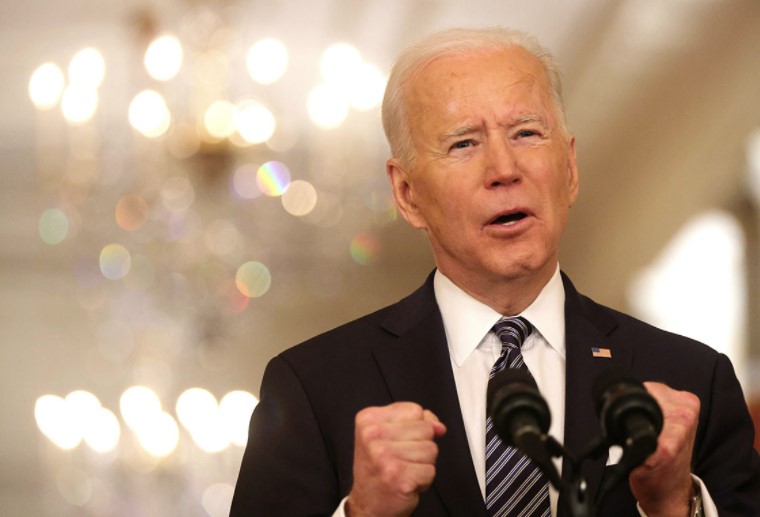Joe Biden has unveiled a sweeping $2 trillion infrastructure proposal that he promises will usher the US into the 21st century, create millions of “good paying” jobs, and put the nation on a footing to compete with an ascendant Chinese economy.
“It’s big, yes. It’s bold, yes. And we can get it done,” the president said of his initial plan on infrastructure at an event in Pittsburgh on Wednesday.
The massive government spending package, which would be paid for by rolling back key components of the 2017 Trump tax cuts, is unlikely to receive any support from Republicans.
The new proposal, which would be even more expensive than Mr Biden’s $1.9 trillion Covid relief package from earlier this month, provides packages of government spending in four main categories.
- $621bn for traditional transportation infrastructure projects such as roads, bridges, and public transit.
- $650bn for “modern infrastructure” that will affect Americans “at home”: broadband internet expansion, revamped water systems and electricity grids, massive investments in public schools facilities.
- $400bn for “care infrastructure” projects such as schools, child care facilities, veterans’ hospitals and other federal welfare buildings.
- and $580bn for research, development and training projects, including providing incentives for companies to keep manufacturing jobs in the nation’s “industrial heartland.”
All of those projects would be geared towards sustainability and mitigating the causes and impact of anthropomorphic climate change.
For instance, Mr Biden’s infrastructure package would shovel $174bn into programmes to increase the US share of the electric vehicle (EV) market by establishing new tax incentives and sales rebates for consumer EV purchases. Billions would go towards grants and other incentives to spur construction of a national network of half a million EV charging stations by the end of the decade. And billions more would be put towards fulfilling his campaign promise to electrify the federal vehicle fleet.
Capitol Hill insiders agree Mr Biden’s infrastructure package is destined to become law in some way, shape or form through the budget reconciliation process that allows Democrats to sidestep Senate GOP obstruction.

